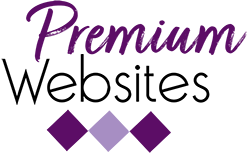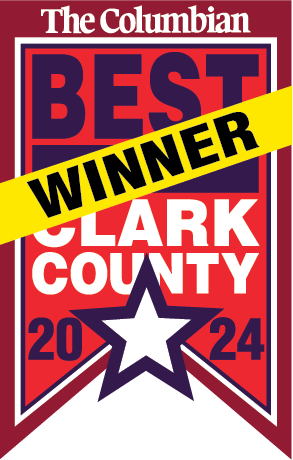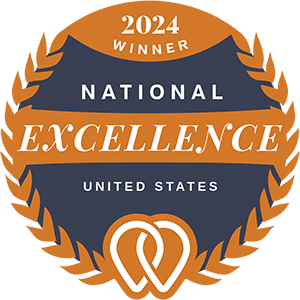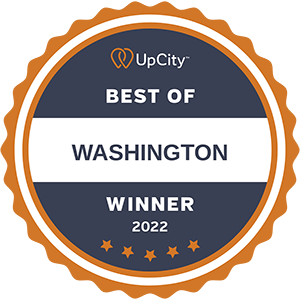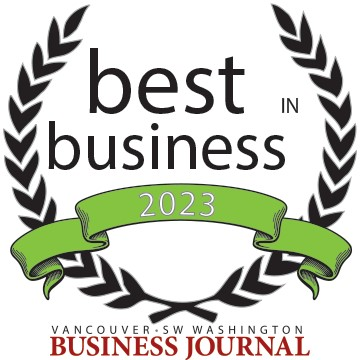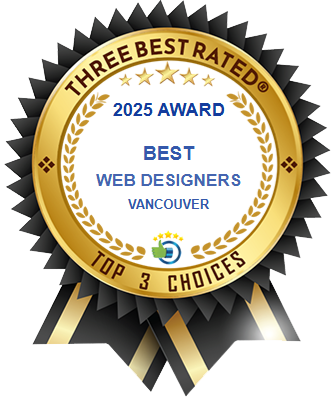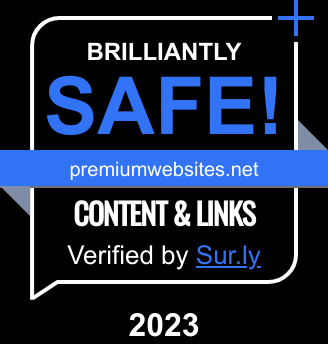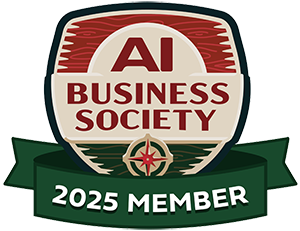Vancouver, WA
Why We Love Vancouver
Premium Websites calls Vancouver its home!
Vancouver, Washington, nestled in the heart of Clark County, is a gem of the Pacific Northwest. This desirable city offers an amalgamation of natural beauty and urban charm that’s hard to find elsewhere.
Vancouver has fine dining as well as mountain camping. There are outdoor activities here all year long. Winter offers skiing, snowshoeing, and warn fires in cabins. Summer offers hiking, camping, boating, and many more outdoor activities. Vancouver is very diverse!
Our deep dive into Vancouver, Washington, will unravel its unique character traits and climate variations throughout the year. We’ll take you on a virtual tour through stunning outdoor attractions, including national parks near Vancouver and urban trails within city limits.
We also address challenges faced by growing cities like Vancouver and discuss how waterfront redevelopment projects are boosting local business opportunities while benefiting public interests.
Dive into vibrant community life & events downtown, explore culinary delights offered in the city’s eclectic dining scene, and understand connectivity to the rest of the world through PDX Airport. There’s so much to discover about this great place called Vancouver, Washington.
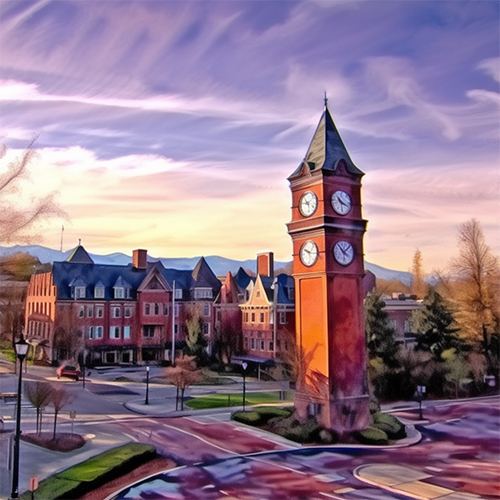
Table of Contents:
- The Allure of Vancouver, Washington
- Outdoor Fun in Vancouver
- Addressing Challenges Faced by Growing Cities like Vancouver
- Revitalizing Vancouver’s Waterfront: A Win-Win for Businesses and the Community
- Vibrant Community Life & Events in Downtown
- Culinary Delights in Vancouver’s Eclectic Dining Scene
- Easy Travel Access Through PDX Airport
The Allure of Vancouver, Washington
Vancouver: where nature, history, and modernity converge. Ranked as the 58th safest city in America, this Pacific Northwest gem perfectly balances suburban serenity and urban excitement.
The Distinctive Traits of Vancouverites
Vancouver residents embody the Pacific Northwest spirit and are friendly, community-oriented, and environmentally conscious. Vancouverites are passionate about outdoor pursuits and proudly patronize local establishments, contributing to the energetic atmosphere of the city.
A Climate for All Seasons
Vancouver’s temperate oceanic climate offers warm summers and cool winters, providing comfortable living conditions year-round. With an average annual temperature range of 40°F (4°C) to 80°F (27°C), Vancouver’s seasonal changes are enjoyable without extreme weather conditions.
But Vancouver is more than just a pretty city. Its rich history adds depth, while contemporary amenities ensure convenience for residents. From numerous parks offering recreational opportunities to a thriving downtown filled with diverse restaurants and shops, there’s something for everyone to enjoy in this beautiful city.
Outdoor Fun in Vancouver
Vancouver, WA, is a nature lover’s paradise. For great outdoor fun, head to the great outdoors and explore the 90 state parks, three national parks, and 20 natural areas in Vancouver, WA.
Places to Visit in Vancouver Washington
Fort Vancouver Historic Reserve
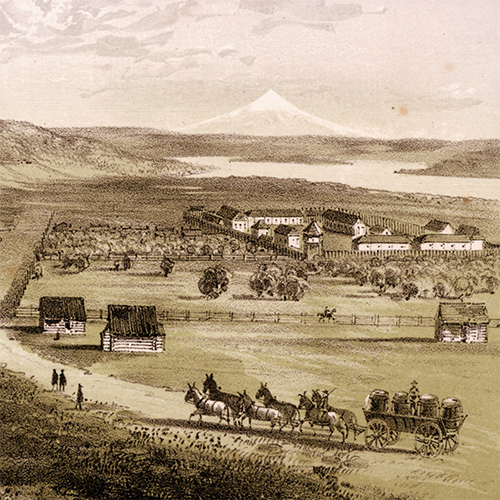
Fort Vancouver was a 19th-century fur trading post that was the headquarters of the Hudson’s Bay Company’s Columbia Department, located in the Pacific Northwest. Named for Captain George Vancouver, the fort was located on the northern bank of the Columbia River in present-day Vancouver, Washington. Wikipedia
Vancouver Waterfront
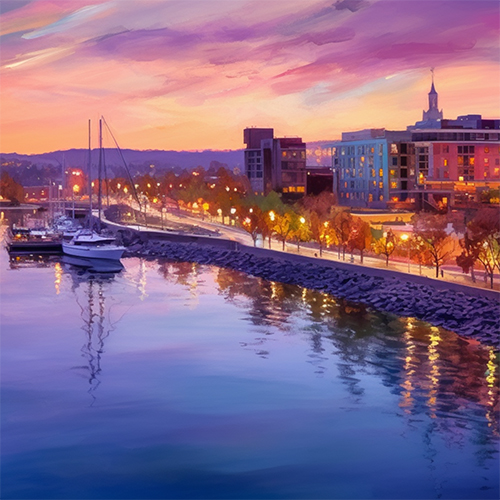
Vancouver Waterfront Park is a 7.3-acre waterfront park in Vancouver, Washington, United States. Wikipedia
The Vancouver Waterfront is a new, high-end section of Vancouver, WA. Many businesses are now open, and many more are still under construction. The views of the Columbia river and the I5 Bridge are spectacular!
Pearson Air Museum
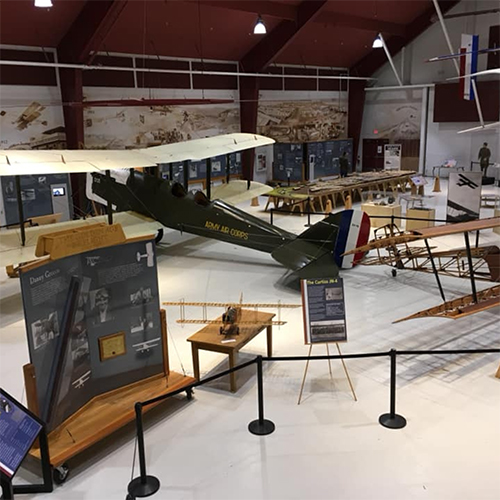
The Pearson Air Museum is a place-based aviation museum at Pearson Field in Vancouver, Washington, USA. Managed by the National Park Service as part of the Fort Vancouver National Historic Site, museum exhibits allow visitors to explore aviation history tied to Pearson Field and Vancouver Barracks. Objects and artifacts from the National Park Service collections and on loan from community members and other museums depict the history of aviation in the Pacific Northwest from Wikipedia.
Vancouver Washington Based Companies
- PeaceHealth
- Legacy Health
- Banfield Pet Hospital
- Premium Websites, Inc.
- Columbia Credit Union
- Wells Fargo
- U.S. Bank
- Providence Health
- Shin-Etsu Handotai America, Inc (SEH)
- Starbucks
- Evergreen Public Schools
- Hawthrone Retirement Group
- Milestone Retirement Communities
- ConMet
- Burgerville
- Dotster
- Hewlett-Packard (HP)
- Waste Connections
- UL
Addressing Challenges Faced by Growing Cities Like Vancouver
Vancouver is charming and vibrant but not immune to growth challenges. Vancouver is addressing its homeless issue by utilizing a range of initiatives and including the local community in their solutions.
The Issue of Homelessness
With a growing population and economic pressures, Vancouver faces an increasing number of homeless individuals. The city’s growing population and economic factors contribute to the problem.
Vancouver’s Approach Towards Addressing Homelessness
Vancouver is attempting to battle homelessness by introducing more affordable housing opportunities and initiatives that offer job preparation and mental health support.
Community Involvement: A Key Factor
Local non-profit organizations like Share House significantly mitigate homelessness by offering resources such as food banks, shelters, and counseling services.
Vancouver takes responsibility towards every resident seriously, preserving its charm while enhancing the quality of life for everyone who calls it home.
Revitalizing Vancouver’s Waterfront: A Win-Win for Businesses and the Community
Vancouver, Washington’s waterfront redevelopment project is making waves. The waterfront redevelopment provides citizens with restored access to the river and enables local companies to benefit from new chances for success.
Boosting Business Opportunities
The project is a game-changer for businesses located near the waterfront. With increased foot traffic and enhanced public access, these businesses are experiencing a surge in sales. The development has also attracted new entrepreneurs looking for suitable locations to shop.
But the benefits continue beyond there. The revamp has positively affected local real estate, with property values rising and homeowners potentially able to get more when leasing or selling.
Restoring Public Access and Preserving Nature
Restoring public access to the riverfront has immense societal benefits. It creates recreational spaces for residents to enjoy outdoor activities like walking along trails or picnicking by the water’s edge.
Moreover, the project contributes to preserving natural habitats that coexist with urban landscapes, promoting biodiversity within city limits. It’s a win-win for businesses and the community.
Vibrant Community Life & Events in Downtown
Why Vancouver, Washington is beloved: vibrant community life. Food festivals, art exhibitions, and more. Something is always happening in downtown Vancouver.
Downtown First Friday Art Walk – A Cultural Treat for Art Enthusiasts
First Friday Art Walk showcases local talent in various forms of visual arts. Attendees can watch live demonstrations or participate in interactive workshops led by professional artists.
Murals Transforming Downtown Streetscape
Vancouver’s downtown area has become visually captivating thanks to its collection of murals painted by renowned artists worldwide. These large-scale artworks add color and character to our streetscapes, making them more than just concrete structures but canvases showcasing creativity at every corner.
Vancouver Mural Festival brings together local and international artists who transform blank walls into vibrant public artworks, creating permanent landmarks within the cityscape that can be enjoyed year-round.
Culinary Delights in Vancouver’s Eclectic Dining Scene
Craving gourmet or a quick bite? Vancouver’s dining scene has something for everyone. From local favorites to unique cuisines, this vibrant city offers a plethora of culinary delights.
Popular Eateries in Vancouver
For an authentic taste of the Pacific Northwest, WildFin American Grill is a must-visit. This locally owned restaurant specializes in fresh seafood and premium steaks cooked to perfection.
Asian cuisine lovers will enjoy Pho Nom Nom, known for its delicious Vietnamese dishes. Their Pho soup is viral among locals and visitors alike.
- Bleu Door Bakery: Satisfy your sweet tooth with Bleu Door Bakery’s array of pastries and desserts.
- The Mighty Bowl: Healthy options abound at The Mighty Bowl, offering nutritious bowls packed with fresh ingredients that don’t compromise flavor.
- Rally Pizza: Pizza lovers will adore Rally Pizza’s artisanal wood-fired pizzas and frozen custards.
Vancouver also boasts several breweries where beer enthusiasts can sample craft beers made right here in Washington State, such as Fortside Brewing Company.
Remember, PDX airport is just a short drive away, offering direct flights to major cities and global flavors for those who wish to explore more.
Easy Travel Access Through PDX Airport
Thanks to its prime location and the nearby Portland International Airport (PDX), Vancouver, Washington, is a breeze to get to. Whether you’re jetting off for business or pleasure, PDX ensures your travel plans are seamless and stress-free.
With direct flights to destinations worldwide, PDX is a vital hub for connecting Vancouver with significant cities worldwide. This is especially helpful for business owners who need to travel frequently.
Top-Notch Amenities at PDX
At PDX, you have a convenient means of travel and enjoy the top-notch amenities it offers for an enjoyable journey. From convenient parking options to delicious dining choices and duty-free shopping, PDX has it.
- Parking: With long-term and short-term parking options, leaving your car at the airport is a breeze.
- Dining: Feeling peckish before your flight? No problem. PDX has plenty of restaurants serving up tasty eats right inside the terminal.
- Retail Stores: Forgot something or want to do some last-minute shopping? Check out one of the many retail stores located within the airport.
And if you’re environmentally conscious, you’ll be happy to know that PDX is committed to sustainability. It was named America’s Best Domestic Airport by Travel + Leisure magazine readers from 2013 through 2023, mainly due to its recycling efforts. Nearly all waste passengers generate is recycled, including food scraps composted into the soil used throughout the region’s farms, gardens, parks, and golf courses.
FAQs about Vancouver, WA
What’s the difference between Vancouver, Washington, and Vancouver, British Columbia?
Vancouver, Washington, and Vancouver, British Columbia, are two distinct cities in North America’s Pacific Northwest region. Still, they are in different countries and have their own unique characteristics and histories. Here’s an overview of the main differences between them:
Location and Geography
- Vancouver, Washington, is located in the United States, directly north of Portland, Oregon, along the Columbia River. It’s part of the Portland metropolitan area and is the fourth-largest city in Washington state.
- Vancouver, British Columbia (BC) is a major city in Canada, situated on the country’s southwest coast, facing the Pacific Ocean. It’s the most populous city in the province of British Columbia and one of Canada’s largest and most vibrant metropolitan areas.
History and Founding
- Vancouver, Washington, was established in 1825 as Fort Vancouver, a fur trading outpost for the Hudson’s Bay Company. It has a rich history tied to the fur trade, early exploration, and the military. It predates the Canadian Vancouver and was named after the British naval captain George Vancouver.
- Vancouver, British Columbia, was founded in the late 19th century and named after George Vancouver. It grew rapidly following the arrival of the Canadian Pacific Railway in 1887, becoming a major port and commercial hub for the Pacific Northwest.
Economy and Industry
- Vancouver, Washington’s economy is closely tied to the Portland metropolitan area, with significant sectors including technology, manufacturing, and service industries. It benefits from its proximity to Portland, without the Oregon state income tax.
- Vancouver, British Columbia, has a diverse economy, with strong sectors in film and television production (earning it the nickname “Hollywood North”), technology, tourism, and international trade, thanks to its status as a major seaport.
Population and Culture
- Vancouver, Washington, has a smaller population, with about 190,000 residents. It offers a suburban feel with access to outdoor activities along the Columbia River and the nearby Cascade Mountains. The city has a growing arts and culture scene but is more low-key than its Canadian counterpart.
- Vancouver, British Columbia, is a cosmopolitan city with a population of over 2.5 million in its metropolitan area. It is known for its cultural diversity, vibrant arts scene, numerous festivals, and various dining options. The city is also noted for its natural beauty, surrounded by mountains and water, and strongly emphasizes outdoor living.
Climate
- Both cities enjoy a Pacific Northwest climate, with mild, wet winters and warm, dry summers. However, Vancouver, BC, tends to have more rainfall and milder temperatures due to its coastal location, while Vancouver, WA, experiences slightly more variation in temperature because it is further inland.
Governance and Legal System
- Being in different countries, the two Vancouvers operate under different legal and governmental systems. Vancouver, Washington, is part of the U.S. legal and governmental framework, while Vancouver, British Columbia, operates under the Canadian legal system and governmental structure.
Conclusion
While they share a name and some regional characteristics typical of the Pacific Northwest, Vancouver, WA, and Vancouver, BC, differ significantly in geography, population size, cultural offerings, and economic focus. Each city offers its unique charm and attractions, reflecting the diverse nature of their region.
What are some popular attractions in Vancouver, Washington?
Vancouver, Washington, offers a variety of attractions that reflect its rich history, natural beauty, and community spirit. Here are some popular attractions in and around the city:
1. Fort Vancouver National Historic Site
- A pivotal site in the Pacific Northwest’s history, Fort Vancouver offers a glimpse into the region’s fur trading, military, and aviation past. Visitors can explore reconstructed buildings and the fort itself and learn about the lives of its historical inhabitants.
2. Columbia River Waterfront
- The recently developed waterfront along the Columbia River provides scenic views, walking trails, parks, and various dining options. It’s a great place for an evening stroll, a meal with a view, or to attend one of the many events held here throughout the year.
3. Esther Short Park
- Located in the heart of downtown Vancouver, Esther Short Park is the oldest public square in the state. The park is a community gathering place, hosting concerts, farmers markets, and other events. The park also features a playground, a rose garden, and the iconic Salmon Run Bell Tower.
4. Vancouver Farmers Market
- Open on weekends from March through October, the Vancouver Farmers Market is one of the largest in the region, offering fresh local produce, artisanal foods, crafts, and live entertainment. It’s a great way to experience the local culture and support regional producers.
5. Officer’s Row
- A beautifully preserved collection of 22 Victorian homes that once housed U.S. Army officers stationed at Fort Vancouver. Many historic homes are now open for tours; some have been converted into businesses and restaurants.
6. Pearson Air Museum
- Located near Fort Vancouver, this museum is dedicated to aviation history, focusing on Pearson Field’s role as one of the oldest operating airfields in the United States. It features vintage aircraft, exhibits, and educational programs.
7. Ridgefield National Wildlife Refuge
- This wildlife refuge offers hiking, bird-watching, and photography opportunities a short drive north of Vancouver. It’s home to many bird species, making it a popular spot for nature enthusiasts.
8. Vancouver Lake Park
- A large park offering picnicking areas, walking trails, and water access for kayaking and windsurfing. Vancouver Lake itself is a serene setting for outdoor activities and relaxation.
9. Clark County Historical Museum
- This museum focuses on the history of Clark County and the Pacific Northwest, with exhibits ranging from the area’s indigenous peoples to the present day. It’s housed in the Carnegie Library building, adding historical significance.
10. The Water Center
- An educational facility that offers interactive exhibits and programs about water conservation, the water cycle, and the environment. It’s particularly great for families with children.
These attractions showcase Vancouver, Washington’s commitment to preserving its history, celebrating its natural environment, and fostering community. Vancouver has something to offer whether you’re interested in history, nature, or local culture.
How do I get to Vancouver, Washington, from Portland, Oregon?
Getting to Vancouver, Washington, from Portland, Oregon, is relatively straightforward due to the cities’ proximity and the variety of available transportation options. Here are the most common ways to travel between these two Pacific Northwest cities:
1. Driving
- Route: Interstate 5 (I-5) North of Portland is the most direct route. The drive typically takes about 15 to 30 minutes, depending on traffic conditions and your starting point in Portland.
- Bridge Crossing: You will cross the Columbia River via the Interstate Bridge, which connects the two cities. Note that traffic can be heavy during rush hours.
2. Public Transportation
- C-Tran: C-Tran (Clark County Public Transit) operates several bus routes that connect Portland to Vancouver. The most direct route for many travelers is the Express service from downtown Portland to various locations in Vancouver, including the transit center and other key points.
- Route 105: I-5 Express from Portland to Vancouver.
- Route 134: Provides service from Portland to Vancouver via Highway 14 and I-205.
- Fare: Check the current fare and schedule on the C-Tran website or use a trip planning app for the most accurate information.
3. Biking
- For the adventurous and active traveler, biking between Portland and Vancouver is possible via the Interstate Bridge, which has designated bike lanes. This is a scenic and eco-friendly option, though it is best suited for experienced cyclists due to traffic.
- The distance is relatively short but plan your route carefully, especially for navigating to and from the bridge on both sides.
4. Ridesharing and Taxis
- Uber, Lyft, and Taxis: Ridesharing services and taxis are available in Portland and Vancouver, offering direct transportation between the cities. This option provides convenience and flexibility but at a higher cost than public transportation.
5. Walking
- For those who enjoy walking and have the time, it’s technically possible to walk from Portland to Vancouver via the pedestrian path on the Interstate Bridge. It’s a unique way to experience the Columbia River up close but be prepared for the distance and the weather.
Travel Tips
- Traffic Considerations: Traffic congestion is expected during weekday morning and evening rush hours, so plan your trip accordingly if you’re driving or using rideshare services.
- Public Transportation: When using public transportation, check the latest schedules and fares as they can change. Also, consider any service adjustments due to holidays or maintenance work.
- Biking and Walking: If you choose to bike or walk, ensure you’re equipped with safety gear and know the weather conditions, as the Pacific Northwest is known for its rainy weather.
Traveling between Portland and Vancouver is easy and can be tailored to fit your preferences, whether you prioritize speed, cost, or experience.
What is the weather like in Vancouver, Washington?
Vancouver, Washington, experiences a temperate oceanic climate characterized by mild, damp winters and warm, relatively dry summers. This climate is typical of the Pacific Northwest region of the United States. Here’s a more detailed look at what you can expect throughout the year:
Spring (March to May)
- Weather: Spring in Vancouver sees gradually increasing temperatures, with averages ranging from the low 40s to the high 60s Fahrenheit (about 4°C to 20°C). Rain is common in early spring, but precipitation typically decreases as summer approaches.
- What to Expect: Blooming flowers and increasing greenery. It’s a good time for outdoor activities as the weather starts to warm up, though it’s wise to keep an umbrella or rain jacket handy.
Summer (June to August)
- Weather: Summers are generally warm and dry, with average temperatures ranging from the mid-50s to the low 80s Fahrenheit (around 13°C to 28°C). July and August are the warmest months, with relatively low humidity and plenty of sunshine.
- What to Expect: Ideal conditions for exploring outdoor attractions, hiking, and enjoying Vancouver’s numerous parks and recreational areas. This is also when the city hosts various outdoor events and festivals.
Fall (September to November)
- Weather: Autumn sees cooler temperatures and increased rainfall. Early fall can still offer warm days, but temperatures usually range from the low 40s to the low 60s Fahrenheit (about 4°C to 16°C) by late November. Rain becomes more frequent, signaling the start of the wetter season.
- What to Expect: Beautiful fall foliage, especially in parks and along the city’s many tree-lined streets. Outdoor activities are still enjoyable in early fall, but it’s advisable to dress in layers and prepare for rain.
Winter (December to February)
- Weather: Winters are mild and wet, with temperatures rarely dropping below freezing. Average temperatures range from the mid-30s to the mid-40s Fahrenheit (about 1°C to 7°C). Snowfall is infrequent and usually light, but it can occur.
- What to Expect: Overcast skies and frequent rain, with occasional snow that rarely accumulates significantly. The winter season is a good time to explore indoor attractions, such as museums, galleries, and cafes.
General Climate Features
- Rainfall: Vancouver receives a significant amount of precipitation, mostly in the form of rain, from late fall through early spring. The annual rainfall averages around 40 inches (about 1016 mm).
- Sunshine: The city enjoys many sunny days, especially in the summer, making it a pleasant time for residents and visitors.
Overall, Vancouver’s climate allows for a variety of outdoor and indoor activities year-round, with each season offering unique beauty and exploration opportunities. Preparing for rain is advisable, especially outside of the summer months, to fully enjoy all Vancouver offers.
Is Vancouver, Washington part of the Portland metropolitan area?
Yes, Vancouver, Washington, is part of the Portland metropolitan area, also known as the Portland-Vancouver-Hillsboro, OR-WA Metropolitan Statistical Area (MSA). This metro area encompasses several counties across two states: Multnomah, Washington, Clackamas, Yamhill, Columbia in Oregon, and Clark and Skamania in Washington.
Vancouver’s close proximity to Portland, Oregon—separated only by the Columbia River—means it is integrally connected to Portland both economically and socially. Many residents of Vancouver commute to Portland for work, and the cities share several cultural and recreational amenities. The interconnectivity is facilitated by several bridges that span the Columbia River, most notably the Interstate Bridge (I-5) and the Glenn Jackson Bridge (I-205), which provide direct routes for vehicular, pedestrian, and bicycle traffic between the two states.
This cross-state metropolitan region benefits from a combined economy that includes technology, manufacturing, healthcare, retail, and a shared focus on sustainability and outdoor recreation. The inclusion of Vancouver, WA, in the Portland metro area reflects the interconnectedness of communities in this part of the Pacific Northwest despite the state boundary that divides them.
Where can I find outdoor recreational opportunities in Vancouver, Washington?
Vancouver, Washington, offers a wealth of outdoor recreational opportunities thanks to its scenic location by the Columbia River and its proximity to forests, mountains, and natural areas. Here are some top destinations and activities for outdoor enthusiasts in and around Vancouver:
1. Columbia River Waterfront
- Enjoy walking, biking, and picnicking along the scenic Columbia River. The Waterfront Renaissance Trail is a 5-mile path that offers beautiful views and connects several parks and attractions.
2. Fort Vancouver National Historic Site
- Explore this historic site’s expansive grounds, including walking trails, beautiful landscapes, and historical reconstructions. It’s a great place for both learning and outdoor activities.
3. Esther Short Park
- Located in the heart of downtown Vancouver, this 5-acre park is the oldest public square in Washington. It features walking paths, a playground, and a beautiful rose garden. The park hosts various outdoor events and festivals throughout the year.
4. Vancouver Lake Park
- It is a popular spot for picnicking, windsurfing, kayaking, and bird-watching. The park has a large, open area with access to Vancouver Lake, making it ideal for water sports and family outings.
5. Ridgefield National Wildlife Refuge
- Just north of Vancouver, this wildlife refuge offers trails for hiking and bird watching in a protected wetland environment. It’s a fantastic place to experience the region’s natural beauty and wildlife.
6. Lacamas Lake Park
- East of Vancouver, this park features miles of trails for hiking and biking, along with opportunities for fishing, kayaking, and canoeing on Lacamas Lake.
7. Mount St. Helens National Volcanic Monument
- For a day trip, venture north to Mount St. Helens. The area around this active volcano offers hiking, mountain biking, fishing, and incredible landscapes shaped by volcanic activity.
8. Columbia River Gorge
- Although primarily on the Oregon side, the Gorge is easily accessible from Vancouver and offers some of the best hiking, biking, and waterfalls in the Pacific Northwest. Activities include windsurfing in the Hood River area and hiking trails that lead to breathtaking views and waterfalls.
9. Pacific Crest Trail Access
- For the more adventurous, the Pacific Crest Trail (PCT) offers long-distance hiking opportunities. While the PCT is east of Vancouver, access points are within a reasonable driving distance for day hikes or longer backpacking trips.
10. Moulton Falls Regional Park
- Located northeast of Vancouver, this park offers scenic hiking trails along the East Fork Lewis River, featuring waterfalls, swimming holes, and a picturesque arch bridge.
Whether looking for a leisurely walk, a challenging hike, or a day of water sports, Vancouver, Washington, and its surrounding areas provide abundant outdoor recreational opportunities that cater to all interests and skill levels.
What are the educational opportunities in Vancouver, Washington?
Vancouver, Washington, offers a range of educational opportunities spanning from primary education to higher education and continuing education. The city is home to public school districts, private schools, community colleges, and university branches, making it a place with diverse options for learners of all ages. Here’s an overview:
Primary and Secondary Education
- Public Schools: The Vancouver Public Schools district serves the majority of the city, offering elementary, middle, and high schools with various educational programs, including magnet programs and specialized academies. The Evergreen School District, serving the eastern parts of Vancouver and surrounding areas, also provides comprehensive K-12 education.
- Private Schools: Vancouver hosts several private educational institutions offering alternative and religious-based education, ranging from Montessori to traditional preparatory schools.
Higher Education
- Clark College: A community college in Vancouver that offers associate degrees, certificates, and professional training programs. Clark College is known for its health sciences, business, and technology programs, among others.
- Washington State University Vancouver (WSU Vancouver): The only four-year research university in Southwest Washington, offering bachelor’s and master’s degrees in more than 40 fields of study. WSU Vancouver is well-regarded for its business, engineering, computer science, environmental science, and public affairs programs.
- Lower Columbia College (LCC): While primarily located in Longview, WA, LCC offers some programs and classes in Vancouver, providing additional opportunities for higher education and vocational training.
Specialized Education and Training
- Vancouver School of Arts and Academics: A public magnet school for grades 6-12, focusing on arts and academics. It’s one of the unique educational offerings in the public school system.
- International Air and Hospitality Academy: Located in Vancouver, this academy offers specialized training for careers in the airline, travel, and hospitality industries, including culinary arts.
Continuing Education and Community Programs
- Community Education Programs: Clark College and WSU Vancouver offer continuing education and non-credit courses for adults looking to learn new skills, pursue hobbies, or enhance their professional qualifications. These include classes in arts, languages, technology, and personal development.
- Public Libraries: The Fort Vancouver Regional Library system provides a wealth of resources for self-directed learning and community education, including workshops, lectures, and events for all ages.
Online Education
- Given its proximity to Portland, Oregon, and the presence of technology companies in the region, Vancouver residents also have access to various online educational resources and courses offered by institutions in the broader Pacific Northwest and beyond.
Vancouver’s educational landscape is diverse, offering pathways for academic achievement, professional development, and personal enrichment. The city’s commitment to education is evident in the variety of programs and institutions available to its residents.
What is the history of Vancouver, Washington?
Vancouver, Washington, has a rich and multifaceted history that dates back thousands of years, with its origins rooted in the indigenous peoples of the Pacific Northwest. Its European exploration, fur trade era, military significance, and growth into a modern city all contribute to its diverse historical tapestry. Here’s a brief overview:
Indigenous Peoples
Before European exploration, the area that is now Native American tribes inhabited Vancouver for thousands of years. The region was home to the Chinook, Klickitat, and other indigenous peoples, who lived along the Columbia River and utilized its resources for fishing, trading, and transportation.
European Exploration and Fur Trade
- 1792: British naval officer Captain George Vancouver explored the Pacific Northwest, including the Columbia River, which laid the groundwork for future European involvement in the area.
- 1825: The Hudson’s Bay Company, a British fur trading business, established Fort Vancouver as a fur trading outpost. The fort became a significant center of the fur trade in the Pacific Northwest, facilitating trade and interaction between Europeans and Native American tribes.
U.S. Military Presence
- 1849: The U.S. Army established the Vancouver Barracks near Fort Vancouver, beginning a long-standing military presence there. The Barracks played roles in various military conflicts and served as a mobilization point, arsenal, and training facility through both World Wars.
Growth and Development
- 1857: Vancouver was incorporated, transitioning from a fur trading and military outpost to a civilian town and community.
- Late 19th to Early 20th Century: Vancouver experienced growth as a hub for transportation, industry, and commerce, facilitated by its location along the Columbia River and the arrival of railroads.
World War II and Beyond
- World War II: The Kaiser Shipyards in Vancouver were a critical part of the war effort, producing ships for the U.S. Navy. The shipyards brought a significant population increase and economic growth.
- Post-War Era: After the war, Vancouver continued to grow, benefiting from its proximity to Portland, Oregon, and the economic integration of the two cities. The closure of the Kaiser Shipyards led to diversification in industries and continued urban development.
Modern Era
- Today, Vancouver is a thriving city known for its quality of life, historic sites, parks, and growing economy. The city has tried to preserve its historical heritage while focusing on sustainable growth and development. Projects like the Columbia River waterfront redevelopment highlight Vancouver’s ongoing evolution.
Vancouver’s history is a blend of indigenous heritage, European exploration, economic transitions, and modern development, making it an integral part of the cultural and historical fabric of the Pacific Northwest.
Is there public transportation in Vancouver, Washington?
Yes, Vancouver, Washington, has a public transportation system operated by C-Tran (Clark County Public Transit). C-Tran provides comprehensive bus service within Vancouver and the surrounding Clark County area and express commuter services to downtown Portland, Oregon. Here’s an overview of the services offered by C-Tran:
Local Bus Service
- C-Tran operates numerous local bus routes that cover Vancouver and its neighboring communities within Clark County. These buses provide access to major shopping centers, hospitals, schools, and residential areas, facilitating easy movement around the city and suburbs.
Express Routes to Portland
- For those commuting or traveling to Portland, C-Tran offers express bus services connecting Vancouver to key Portland locations, including downtown and the Portland International Airport. These express routes are designed for commuters, offering a convenient alternative to driving across the Interstate Bridge during rush hours.
The Vine
- The Vine is C-Tran’s Bus Rapid Transit (BRT) service, which operates along the Fourth Plain and Mill Plain Boulevards corridors, one of Vancouver’s most densely populated and diverse areas. The Vine offers higher frequency, increased capacity, and faster service than traditional buses, with features like dedicated lanes and traffic signal priority in certain sections.
Paratransit Services
- C-Van is C-Tran’s paratransit service, offering door-to-door transportation for eligible riders who cannot use the regular fixed-route bus service due to disability or health conditions. This service provides vital mobility for those with special transportation needs.
Biking and Walking
- Many C-Tran buses have bike racks, allowing cyclists to combine biking with bus travel for greater flexibility. Additionally, Vancouver’s developing bike lanes and paths network supports multimodal transportation options for residents and visitors.
Fares and Payment
- C-Tran uses a fare system based on the type of service (local, express, or BRT) and offers various payment options, including cash, mobile payment, and the Hop Fastpass. The Hop Fastpass is a regional electronic fare payment system used by C-Tran, TriMet (Portland’s transit service), and Portland Streetcar, allowing seamless travel across the region’s public transportation network.
Planning Your Trip
- You can visit the C-Tran website or use transit planning apps that incorporate local public transportation data for route maps, schedules, fare information, and trip planning tools.
C-Tran’s services are crucial in connecting Vancouver with the wider Portland metropolitan area, providing viable transportation options for commuters, students, and residents seeking to navigate the region efficiently and sustainably.
What are some local specialties or unique culinary experiences in Vancouver, Washington?
Vancouver, Washington, offers a variety of local specialties and unique culinary experiences that reflect the region’s diverse culture and rich agricultural heritage. Here are some standout options and experiences for food enthusiasts exploring Vancouver:
1. Pacific Northwest Cuisine
- Local Focus: Many restaurants in Vancouver emphasize Pacific Northwest cuisine, which features fresh, locally sourced ingredients such as seafood from the Pacific Ocean, wild mushrooms, berries, and produce from the fertile valleys of the region. Look for dishes that highlight salmon, Dungeness crab, and hazelnuts.
2. Farm-to-Table Dining
- Sustainable Eating: The farm-to-table movement is strong in Vancouver, with several eateries partnering with local farms and producers to create seasonal menus. These establishments offer a chance to taste the freshest flavors of the area while supporting local agriculture.
3. Craft Breweries and Taprooms
- Beer Culture: Reflecting the broader Pacific Northwest’s passion for craft beer, Vancouver has a burgeoning brewery scene. Local breweries and taprooms serve a range of innovative and traditional beers, often in settings that encourage community gathering. Brewery tours and tastings are a great way to experience the local beer culture.
4. Coffee Shops and Roasteries
- Coffee Excellence: Like its neighbor Portland, Vancouver takes its coffee seriously, with numerous cafes and roasteries dedicated to the art of coffee making. Enjoying a carefully brewed cup of coffee in one of the city’s cozy coffee shops is a must-do experience.
5. Farmers Markets
- Fresh and Local: The Vancouver Farmers Market is a focal point for local food culture, offering a wide range of products from regional farms, artisan food producers, and craft vendors. It’s an excellent place to sample local specialties, pick up fresh ingredients, and enjoy ready-to-eat meals and snacks.
6. Wineries and Wine Bars
- Local Wines: While the surrounding areas of Southwest Washington and nearby Oregon are known for their vineyards, Vancouver is home to several wineries and wine bars that showcase regional wines. Wine tastings and events offer insights into the local wine scene.
7. Global Cuisines
- Diversity: Reflecting its diverse population, Vancouver’s culinary scene includes many global cuisines. From authentic Mexican taquerias and Asian eateries offering Chinese, Japanese, Korean, and Thai food to European influences with Italian and French restaurants, there’s a world of flavors to explore.
8. Food Trucks and Carts
- Street Food: The food truck trend is alive and well in Vancouver, with various mobile eateries serving everything from gourmet sandwiches and international dishes to indulgent desserts. Food truck events and pods are a fun way to sample different cuisines.
9. Unique Eateries
- Quirky and Original: Vancouver has some unique dining concepts and quirky eateries that offer unusual dining experiences, from themed restaurants to establishments known for their innovative dishes and presentations.
Whether you’re a local resident or a visitor, exploring Vancouver, Washington’s culinary scene offers a delightful journey through local flavors, international cuisines, and unique dining experiences that reflect the city’s vibrant community and natural bounty.
